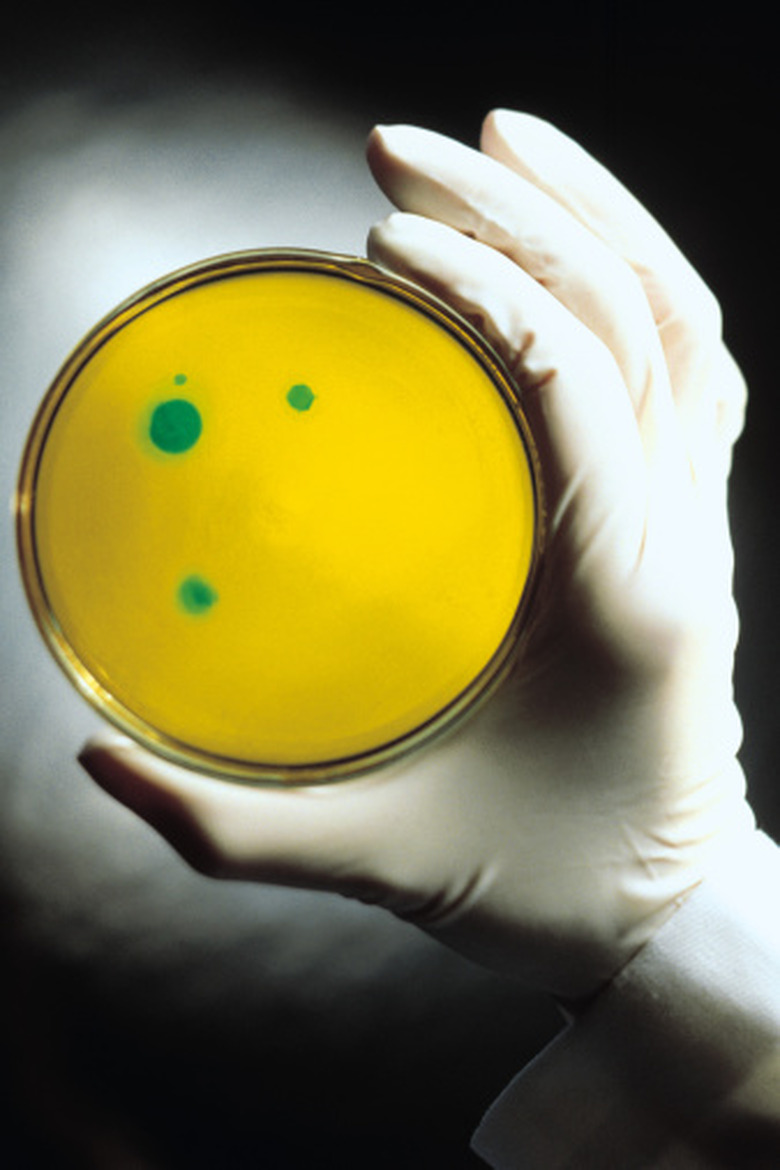What Types Of Bacteria Are Parasites?
There are many things in this world that can make you sick, including microscopic organisms such as bacteria, viruses, fungi, protozoa and molds. While some diseases result in quick death or are transmitted by outside sources, others exhibit the behavior of a parasite, which means they use a host's own biological processes to multiply and spread.
Bacteria
Bacteria
Bacteria are simple, single-cell organisms that do not have a nucleus. They are some of the earliest cells to form on this planet and are said to be prokaryotic because they developed more than a billion years before eukaryotic cells, which have nuclei and other complex organelles. Bacteria are best known for causing a variety of diseases, from childhood illnesses to sexually transmitted diseases. However, bacteria can be found everywhere in the world and often serve a positive purpose, such as bacteria in our intestines to help us digest food, or decomposers in nature that break down dead material.
Parasites
Parasites
A parasite is any organism that uses a host and its processes to survive and multiply. In general, parasites do not kill their hosts because that would, in turn, kill them. Instead, most parasites use the host for a specific need, whether it is for food or a safe place to reproduce. Some people consider viruses to be a form of parasite because they use a cell's processes to multiply. The most recognizable parasites cause specific diseases, like the protozoa that causes malaria. Other parasites are multicellular organisms like tapeworms, hookworms and even the wasp Encarsia pergandiella, which lays its eggs in developing whiteflies.
When Are Bacteria Parasites?
When Are Bacteria Parasites?
While some bacteria are parasites, not all bacteria are. Neither are all parasites bacteria. Parasites can be any organism that uses another as a host, and sometimes that parasitic organism is bacteria. It depends on the life cycle of the parasitic organism and how it uses the host. The bacteria that causes strep throat acts as a parasite in the human body because it uses the host to multiply and eventually spread to another organism.
Examples of Parasitic Bacteria
Examples of Parasitic Bacteria
If bacteria can infect a host, multiply inside the body and eventually spread to another organism, it exhibits the behavior of a parasite. Many bacterial diseases do this. In particular, food-borne illness such as salmonella exhibit this behavior. Other examples of bacteria that act as parasites are those which cause sexually transmitted diseases. The bacteria that causes syphilis and gonorrhea use the natural function of human hosts to multiply and spread. Additional bacteria that act as parasites include those that cause the diseases cholera, small pox and the Bubonic plague.
Cite This Article
MLA
Carr, Kevin. "What Types Of Bacteria Are Parasites?" sciencing.com, https://www.sciencing.com/types-bacteria-parasites-8470244/. 24 April 2017.
APA
Carr, Kevin. (2017, April 24). What Types Of Bacteria Are Parasites?. sciencing.com. Retrieved from https://www.sciencing.com/types-bacteria-parasites-8470244/
Chicago
Carr, Kevin. What Types Of Bacteria Are Parasites? last modified August 30, 2022. https://www.sciencing.com/types-bacteria-parasites-8470244/
